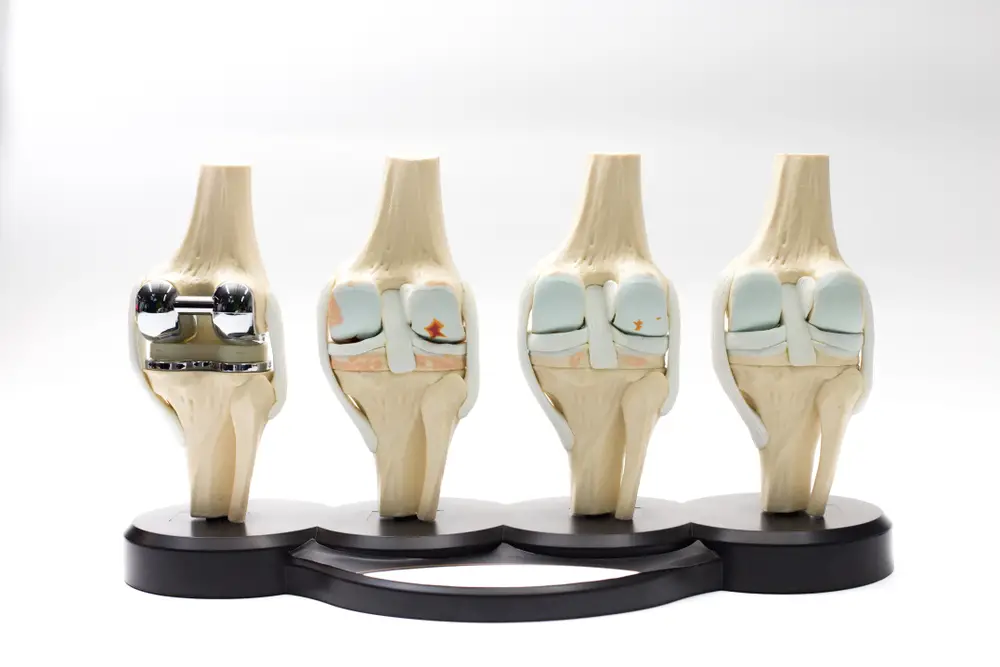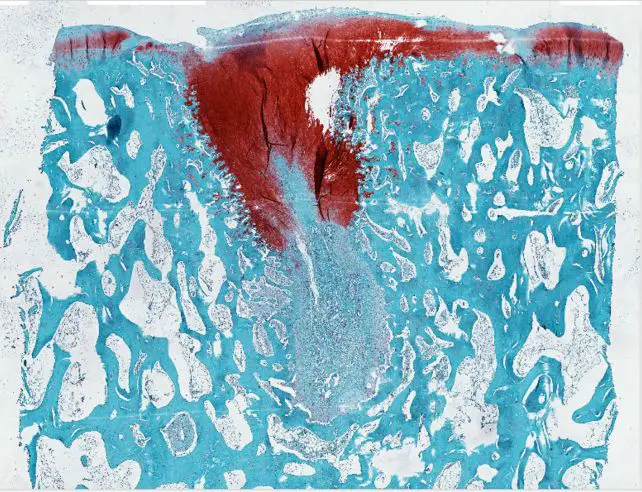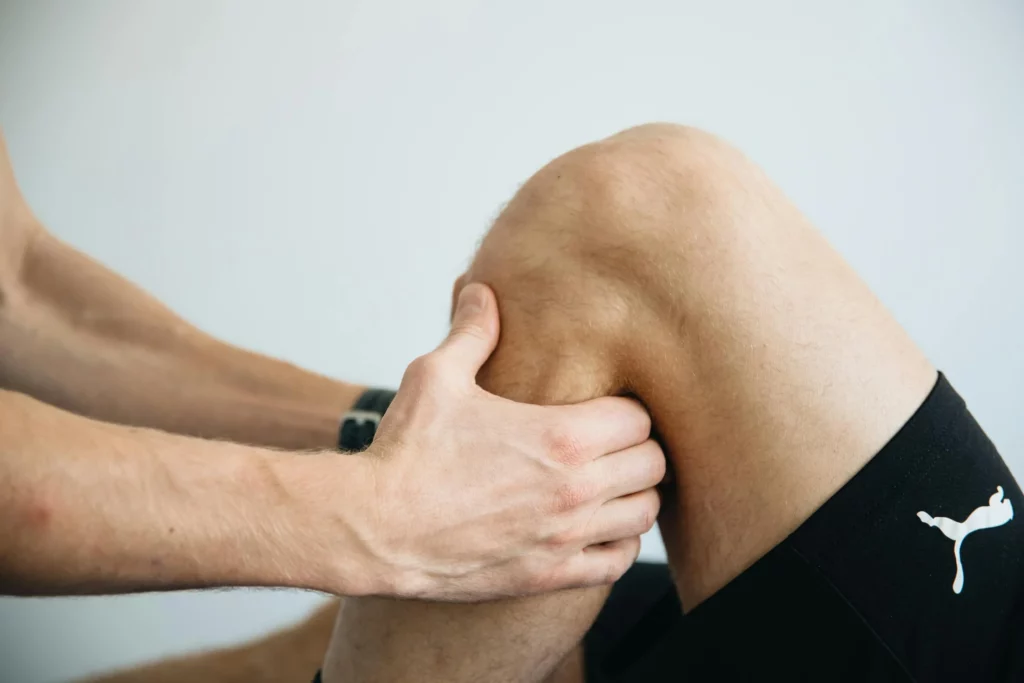Cartilage is a strong, flexible connective tissue that protects the joints and bones and acts as a shock absorber throughout the body.
The cartilage in the knee has no direct blood supply which makes it hard, if not impossible to heal, with most tears requiring surgery.
However, in what they describe a revolutionary discovery, scientists developed a new biomaterial that successfully regenerated high-quality cartilage in the knee joints of sheep.
The innovative injectable substance could potentially help repair joint damage caused by degenerative diseases such as osteoarthritis, as well as sports injuries such as anterior cruciate ligament (ACL) tears.
“Cartilage is a critical component in our joints,” says Samuel I. Stupp of Northwestern University, whose team of scientists is behind this new innovation. “When it becomes damaged or breaks down over time, it can have a great impact on people’s overall health and mobility. The problem is that, in adult humans, cartilage does not have an inherent ability to heal. Our new therapy can induce repair in a tissue that does not naturally regenerate. We think our treatment could help address a serious, unmet clinical need.”
The biomaterial is made of two components: a bioactive peptide that binds to a protein vital for cartilage growth, and modified hyaluronic acid.
“Many people are familiar with hyaluronic acid because it’s a popular ingredient in skincare products,” Stupp said. “It’s also naturally found in many tissues throughout the human body, including the joints and brain. We chose it because it resembles the natural polymers found in cartilage.”

Stupp’s team developed a scaffold using these two components that mimics natural cartilage, signaling the body’s own cells to regenerate the damaged tissue.
They tested it on sheep because their hind legs are similar to human knee in terms of structure and the weight they bear. “A study on a sheep model is more predictive of how the treatment will work in humans,” Stupp said. “In other smaller animals, cartilage regeneration occurs much more readily.”

The biomaterial injected into the sheep’s stifle joint formed a rubber-like matrix. As it dissolved, new cartilage grew in, surpassing the control tissue in quality during testing.
Scientists believe this method to be more successful and less invasive compared to the present options, which include creating microscopic fractures on the bone to encourage new cartilage growth and complete knee replacement.
Please SHARE this article with your family and friends on Facebook.
Bored Daddy
Love and Peace

